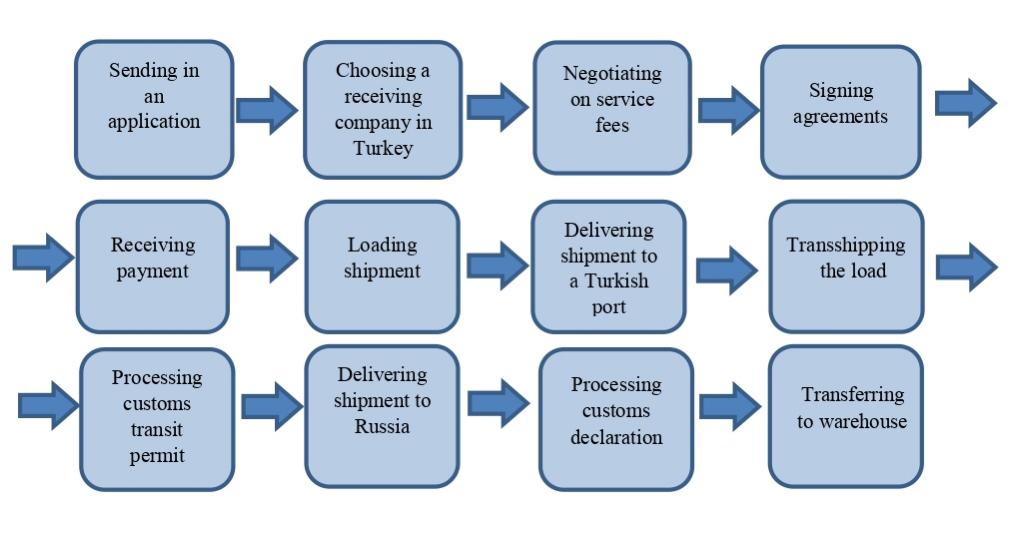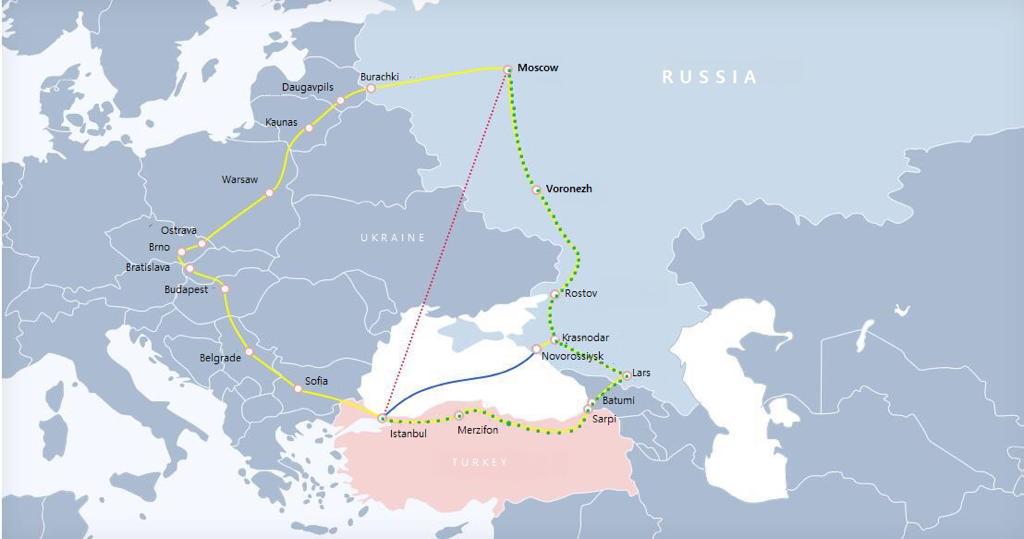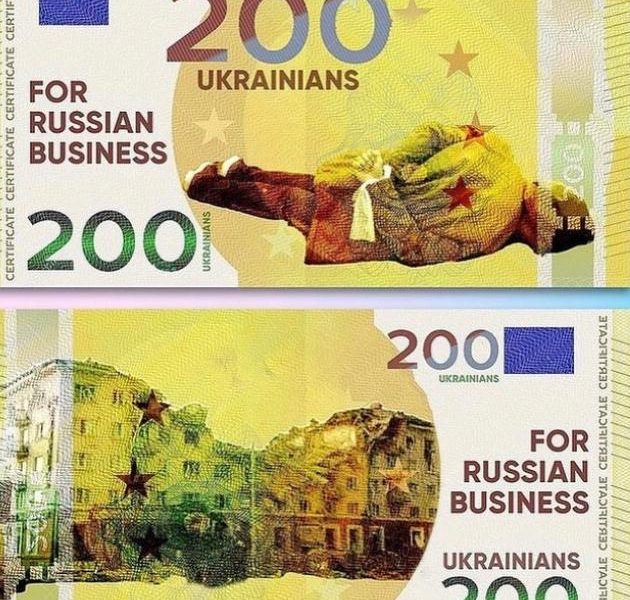While Russia is targeted by economic sanctions, importers are actively seeking for the ways to evade them. Money transfer and logistics are the key issues to their strategies. According to open source intelligence (OSINT), the Kremlin may be opting for the following ways to avoid the restrictions imposed by sanctions.
- Running entities in third countries like Armenia, Georgia, Estonia, Iran, Kyrgyzstan, China, Turkey, and UAE. Concurrently though commercial contracts the official buyer is a designated entity located in these third countries. When the shipment arrives, it is registered as transit and goes further to Russia. An example of this practice is provided by the Russian-Turkish Business Council (RTBC, 109012, bldg.1, 6/1, Ilyinka str., Moscow Russia, www:rtbc.ru, e-mail: rtbc@rtbc.ru, rtbctpp@yandex.ru, dios@tpprf.ru, tel:+84955029289, +84956200429)

Since the EU has banned Russian and Belarusian logistics companies from entering the EU, the easiest route for this illicit trade is through Georgia using road motor transport or by rail freight.

To implement this strategy of evasion, the following agreements are signed:
- Agreement of sale and purchase №1 between an American/European goods supplier and a Turkish business entity. The currency, prices, payment conditions and obligations are negotiated between a buyer in Russia and a supplier in Europe/USA and are stated in this Agreement.
- Agreement of sale and purchase №2 between the entity in Turkey and the buyer in Russia. Currency – the Turkish lira. The payment conditions are stated in this Agreement as well according to the Agreement №1. The price comprises the price of the Agreement №1 as well as the Turkish entity’s revenue, bank fee for the Agreement №1 payments and the logistics fee.
- Agreement №3 for provision of services between the buyer in Russia and the RTBC’s representative. Currency – the Russian ruble. The payment conditions are: 50% as a down payment, another 50% is transferred after shipment’s delivery. The price is determined by the representative’s revenue.
- Trading goods on the part of a European company to an entity based in a third country that hasn’t imposed any sanctions on Russia (Turkey, UAE, Azerbaijan, Georgia, Kirgizstan etc.) by using bonded warehouses (without actually delivering the goods to the receiving country). By doing so, any of these third countries could be a supplier, while the shipment would be processed as a transit operation. The buyer pays no VAT.
- «DHL Express» – the international logistics company that operates throughout the world. On 2 March the company suspended its inbound services to Russia, while still operating inside the country as well as making deliveries abroad.
The following payment schemes are ones that could possibly be used by traders to aid the evasion of sanctions:
- Using PayPal and Payoneer. An entity is registered in a third country, which later creates accounts in the mentioned payment systems. Concurrently, PayPal is the most widespread system for making payments to the suppliers from the US, Canada and the EU. Meanwhile, Payoneer provides an option to hold a transfer account (for transferring money to other accounts).
- Using a letter of credit, which is established by a European bank in favour of the supplier in the third country. In this case Russia acts as a guarantee beneficiary.
- Using cryptocurrency.
- Using the KoronaPay app, which allows the user to exchange euros to Russian rubles from foreign bank accounts to Russian banks via Swiss intermediary banks, which some Russian citizens hold accounts in.
Using Kyrgyz payment cards. The money is transferred to Kyrgyzstan by the Russian banks (Tinkoff Bank, Sberbank of Russia) beforehand. By implementing this scheme, it is possible to get cash in Saudi Arabia.




